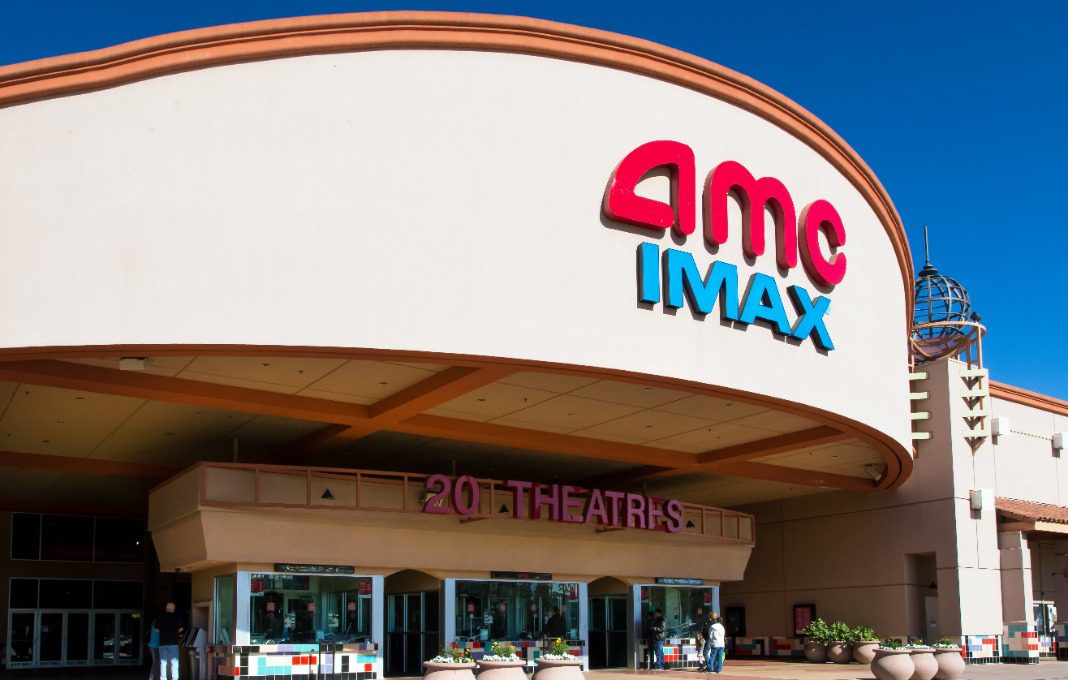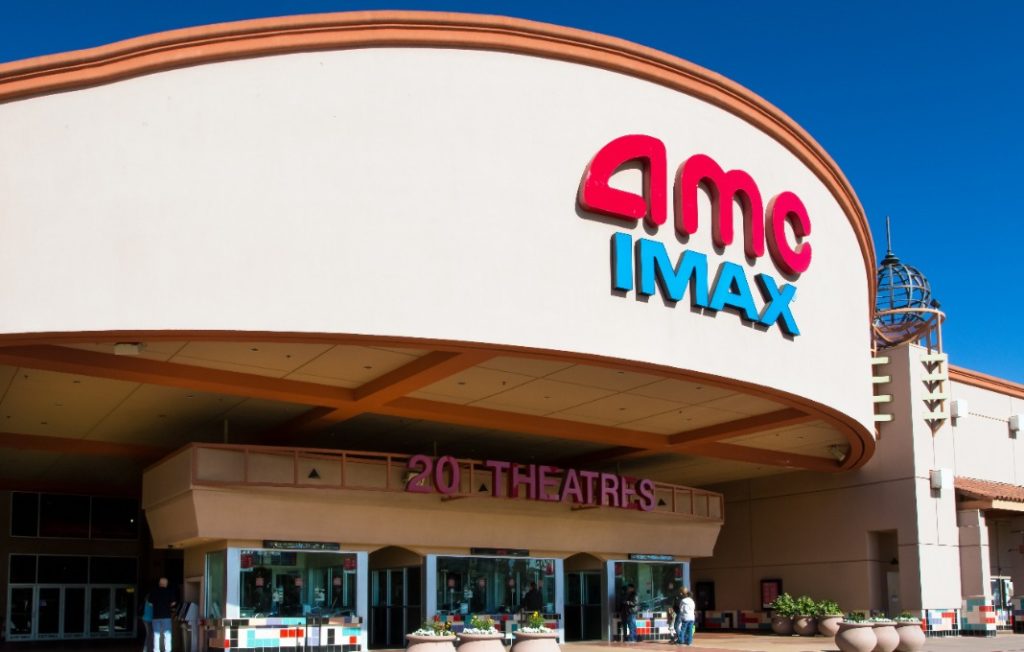How AMC Entertainment Survived The Pandemic



The pandemic created thousands of business survival stories, but none more improbable—and riveting—than that of AMC Entertainment, the world’s largest theater chain. At our recent Strategic CFO Forum, Adam Aron, chairman and CEO of AMC Entertainment, took us the behind-the-scenes on how he and his CFO Sean Goodman kept the firm out of bankruptcy—and why—and shared his thoughts on lessons learned for every leader.
AMC is only part of Aron’s long and impactful career leading a number of high-profile brands over the last few decades. Just prior to AMC, he was CEO of Starwood Hotels and Resorts Worldwide and CEO of World Leisure Partners. He’s currently a co-owner and board member of the Philadelphia 76ers—an organization he also ran. Aron also currently sits on the board of directors of Norwegian Cruise Line Holdings.

In part one of this two-part series, Aron shares the story of AMC’s near implosion, as a “novel coronavirus” sweeps across the world—and brings his revenues to near zero almost overnight.
When I joined AMC in January of 2016, we were the second-largest movie theater chain in the United States. Within a year, year and a half, we’d become the largest movie theater chain in the world. Everything was fine. We did have some debt. That’s how we chose to finance the business. We were at about five times that EBITDA or so, but we had very stable EBITDA. Our EBITDA never took a dip, not even in a recession did it take a dip. We were just minding our own business having a grand old time. Then the pandemic hit.
AMC is a proud American company. Pre-pandemic about $5.5 billion in revenues, publicly owned, traded on the New York Stock Exchange. We did have class A/B stock. We had one shareholder, they only owned about 50% of the outstanding stock. They had about 80% of the vote. It was a Chinese company based in Beijing, one of the largest private companies in China. They happened to run the largest theater chain in China, which is the second-largest movie market in the world. They are wonderful people. I love these people. They recruited me to run the company from the outside. It’s Wanda Group.
But back to the first clue I had, so, once a year, there was a command performance where almost 1,000 of their internal executives or the senior officers of companies that they owned outside of China would come to a city in China and gather basically a combination of hearing their annual performance results and a big pep talk for all their people and a gala dinner. It was quite a celebratory thing. And the meeting for 2020 was scheduled for January 11 and January 12. It was in a city in China that had a population of about 10 million people. I must admit I had no idea how to get there from Kansas City, where I’m currently based.
That city was Wuhan, China.
About a week before the meeting, somewhere like the 5th or 6th of January, I got an email from Beijing saying, “We’ve changed the location of our meeting. We’re not gonna be in Wuhan. We’re gonna be in Guangzhou.” I remember thinking, “How do they move a meeting of 1,000 people, you know, 1,000 miles a week out?”
It seemed pretty difficult to me, as was figuring how I was gonna get to go to Guangzhou, China, from Kansas City, and cancel all the tickets to Wuhan. When I got there, I remember saying, “So why did you guys change where the meeting was?” And they said, “Oh, there’s a little virus in Wuhan.” So, I got an early read on the Coronavirus.
But you’ll recall that all of January and most of February, it stayed in China. It had not migrated out. The next heads-up we got was February 23 of 2020 when the city fathers of Milan told us that there were some Coronavirus that had spread to Milan and as a precaution, they wanted to shut six of our 1,000 theaters globally. They wanted to shut six theaters in Milan for 10 days. That also didn’t make any sense to me, because I’m thinking, Wait. Everything I’ve heard is you need to quarantine for 14 days.
So I hadn’t really heard that the virus had spread to Italy yet, but…number one, I hadn’t heard it spread to Italy, and number two, if they’re shutting us down for 10 days, why aren’t they shutting us down for 14 days? Anyway, from that point, three weeks later, just three weeks later, we had to shut all 1,000 of our theaters globally in 15 countries, which was quite an existential crisis for AMC.
We went from having $450 million a month of revenue to $450,000 a month of revenue in one week. In a week. We had $600 million of cash on hand. But all of a sudden, when you’re burning $125 million in cash a month, $600 million doesn’t last you very long.
We did all the things you would expect us to do. We slashed our expenditures, and when I say slashed, we reduced our capital expenditure program basically by 100%. We slashed our operating expenditures by 85% in six weeks. In six weeks we pulled that off, and yet we were still burning through $100 million of cash a month. We furloughed all 35,000 employees. I remember a couple of years ago we were trying to be efficient and we trimmed 35 jobs in our corporate headquarters and our management team just agonized over whether we could cut or should cut 35 jobs. Well, we cut 35,000 jobs and we didn’t blink an eye. We didn’t have a choice. We were just bleeding cash.
During this timeframe, late March of 2020 when all of our theaters were shut, we had no revenues and we were suddenly immensely cash negative despite all the things we’d done, I got a phone call from a guy who was the CEO of a major cruise line whose birthday was three weeks apart from mine and we had just turned 65 a few months earlier.
I remember what he said to me, he said, “Adam, I’m 65, you’re 65. This is gonna be three years of hell. Are we up for this? Are we really ready to take this on?” And I remember saying to him instantly, “Not only are you ready to take this on and I’m ready to take this on, but you and I both have had very successful careers here before.”
You mentioned AMC is the fifth company I’ve run. I also ran Vail Resorts. I also ran Norwegian Cruise Line. I was the chief marketing officer of United Airlines. I was a chief marketing officer of Hyatt Hotels. I had a nice track record of success throughout my career. And I remember saying to my buddy, “You’ve had a successful career and I’ve had a successful career and nothing we’ve done so far matters compared to right now because right now, we’re playing for our legacy. And if you can guide your institution through this once-in-a-century existential crisis, and if I can do that with mine, this is the stuff that will define all of our careers.
And if we failed now, you know, it’s nice that we succeeded along the way. But when the chips were down in our sort of final jobs running big institutions, the case of AMC had been around for 100 years, what we’d be remembered for is that Coronavirus crisis was bigger than we were. And I was gonna be damned if I was gonna let that happen to AMC. I’ll do all my power to get us through.
I’m happy to say that where we sit today, that is, in fact, exactly what has happened. We’ve survived this pandemic. We have a lot of cash in the bank. At the end of the second quarter, we had $2 billion of cash in the bank or undrawn revolving credit line. And for a company of our size, that’s a tremendous cash hoard.
So, Sean, he’s a great CFO. Ironically, we had a very good CFO before Sean who retired in December of 2019. Boy, was his timing good! Sean had been with our company about 90 days, and all of a sudden we’re shutting down.
When you say what was he telling me about our operation, the real question is, what operation? We were shattered. Our theaters were shut, our corporate headquarters were shut. None of us had ever heard the word Zoom before. We certainly have heard the word now.
And Sean and I run the company as a team. We’re very much partners in this effort to run our company well. And there was no time to hide that news. You just had to discuss very plainly: Where were we? Essentially, he was telling me that even after we’ve sliced all of our expenditures, that we’d run out of cash by July. So, that’s a pretty heady conversation. The next thing he told me was that he figured out that if we didn’t stop paying rent to our theater landlords because we don’t own most of our theaters, we lease most of our theaters, we’d probably run out of cash in May or June or July.
That led to a letter that we sent to all of our 700 landlords who control 1,000 movie theaters that said, “Guess what? We can’t pay you rent starting right now. And we wanna talk to you about it. We wanna work out agreements to defer rent, abate rent, defer rent.” Rent is about a fifth of our revenues, about a quarter of our total expenditures. We sent that letter out not knowing if they would sort of involuntarily throw us into bankruptcy because we’re not current on rent. But as it turns out, they wanted AMC to survive too. And they were great allies in the effort. We renegotiated 700 theater leases.
So the lights weren’t on, actually, at the corporate headquarters. The lights were off. We were all trapped in our homes, if you remember what it was like back then. We were on the phone or figuring out FaceTime or Zoom or Teams. I remember seeing commercials for Teams on television in Q2. I didn’t even know what it was. I’d never heard of it. All of a sudden we’re running our lives on it.
When I say furlough, 97% of our workforce went to zero pay. You’ll recall, Congress was in the mode of passing the Cares Act, so we knew that there would be ample unemployment assistance for our people. We also put in various HR policies which were vigorously debated internally as to what we could do to help.
We let people draw down vacation balances at full pay and draw down sick pay. But I told you, we went to zero pay status for 97% of our staff. I’d say about 50 to 100 of our staff were on 80% time and 80% pay and maybe another 100, 200 people were on 40% time at 40% pay. But we really went down to a skeletal crew of about 200 people, some of them were working officially two days a week, some of them were officially working four days a week.
But of course, we were all working seven days a week.
We called on their allegiance and loyalty of the company that we didn’t want AMC to go down. We knew they didn’t want AMC to go down. We were gonna do everything in our power to prevent AMC from going down, and so, I don’t think they’ve ever worked harder in their life. Fortunately for us, they also worked very well.
We caught a break early. We were hoping we would get government money. I personally was on the phone with 18 U.S. senators, the majority leader in the House of Representatives and the Secretary of the Treasury all in one-on-one calls saying, “We’ve gotta get Cares Act money. If we don’t get Cares Act money, we’re gonna file for bankruptcy in June or July.”
And we didn’t get any Cares Act money because they said that we were too big and that from a public policy perspective that we needed to rely on so-called self-help, which wasn’t easy because nobody was lending any money to anybody at that time.
I can tell you that I was on the phone every other day with the senior senator from Kansas—our home city is Kansas City—who was fabulous. He personally called the chairman of the Fed and he personally called the Secretary of the Treasury. We still got nothing.
But the one thing that the Secretary of Treasury did do and the chairman of the Fed did do is in the policies that they implemented in March, they unfroze the capital markets. We found out on a Tuesday in mid-April that it looked like we could raise a little public debt. We just moved instantaneously. If there’s one lesson in all of this other than be bold, it’s move fast. There was just no time to be bureaucratic or slow. There was no time for PowerPoint presentations. We just had to make decisions and move.
By that Friday night—remember we first heard the capital markets had a chance of unfreezing on Tuesday—by that Friday night, we closed a $500 million public debt offering which extended our financial runway by four months. So, all of a sudden, July was now October, November. We were so relieved in mid-April that while we still were in a very precarious circumstance, we weren’t 12 weeks away from running out of cash. We had a little bit more time.
It was like that for the next eight months.

Chief Executive Group exists to improve the performance of U.S. CEOs, senior executives and public-company directors, helping you grow your companies, build your communities and strengthen society. Learn more at chiefexecutivegroup.com.
0

1:00 - 5:00 pm
Over 70% of Executives Surveyed Agree: Many Strategic Planning Efforts Lack Systematic Approach Tips for Enhancing Your Strategic Planning Process
Executives expressed frustration with their current strategic planning process. Issues include:
Steve Rutan and Denise Harrison have put together an afternoon workshop that will provide the tools you need to address these concerns. They have worked with hundreds of executives to develop a systematic approach that will enable your team to make better decisions during strategic planning. Steve and Denise will walk you through exercises for prioritizing your lists and steps that will reset and reinvigorate your process. This will be a hands-on workshop that will enable you to think about your business as you use the tools that are being presented. If you are ready for a Strategic Planning tune-up, select this workshop in your registration form. The additional fee of $695 will be added to your total.

2:00 - 5:00 pm
Female leaders face the same issues all leaders do, but they often face additional challenges too. In this peer session, we will facilitate a discussion of best practices and how to overcome common barriers to help women leaders be more effective within and outside their organizations.
Limited space available.

10:30 - 5:00 pm
General’s Retreat at Hermitage Golf Course
Sponsored by UBS
General’s Retreat, built in 1986 with architect Gary Roger Baird, has been voted the “Best Golf Course in Nashville” and is a “must play” when visiting the Nashville, Tennessee area. With the beautiful setting along the Cumberland River, golfers of all capabilities will thoroughly enjoy the golf, scenery and hospitality.
The golf outing fee includes transportation to and from the hotel, greens/cart fees, use of practice facilities, and boxed lunch. The bus will leave the hotel at 10:30 am for a noon shotgun start and return to the hotel after the cocktail reception following the completion of the round.